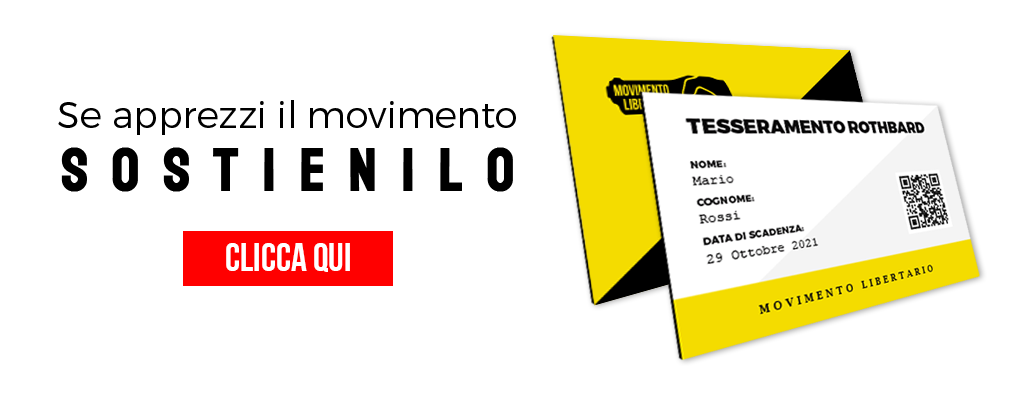Former Italian Prime Minister Silvio Berlusconi failed last week to bring down Prime Minister Enrico Letta’s fragile coalition government, but he came dangerously close. Despite being convicted for tax fraud and facing expulsion from the Senate and potentially house arrest, Berlusconi managed to throw the entire Italian political establishment into disarray, rattle global financial markets and threaten to thrust the larger euro zone back into crisis.
How did Berlusconi — a man who in most other countries would have long ago been politically dead — manage to orchestrate such a political drama? In large part, the answer comes back to taxes. In threatening to bring down the government under the guise of his opposition to a property tax and a planned increase of value-added tax (VAT), Berlusconi attempted to play to Italians’ deep disdain for the country’s tax code.
“The tax evader in Italy is a hero. Tax evasion is the ultimate form of tax revolt,” says Leonardo Facco, founder of the Friuli-based Libertarian Movement. Facco, who was formerly a leader within the populist Northern League party that has been aligned with Berlusconi’s People of Freedom party, believes the Italian tax system is “characterized by a bureaucracy and zany collection system worthy of the worst medieval extortionists.” While Facco suggests Berlusconi’s tax stance is built on rhetoric rather than substance and that he is not a true economic liberal, he concurs with Berlusconi’s position on the VAT and property tax. “They are robbery,” says Facco.
L’ARTICOLO ORIGINALE CONTINUA QUI: SPIEGEL
LE DOMANDE CHE MI AVEVA POSTO E LE RISPOSTE CHE GLI AVEVO DATO
1. Can you broadly explain your political Movement: Where you are based, when and why you founded the Movement, and it what the broad goals and objectives are?
The Libertarian Movement was founded in 2005. Our registered office is in Friuli, near Venice, but we have members and supporters throughout Italy. The main purpose of the Libertarian Movement is to bring out the state from the lives of the citizens, fight the tax – which is a steal and a real form of aggression – restore the centrality of individual freedom and spread the teachings of the Austrian School of Economics .
2. More specifically, what is Movimento Libertario’s stance on the the Italian tax system? Is the tax code fair? Or should it be reformed–and, if so, how?
The Italian fiscal system is simply criminal. In Italy, the tax is equal and even higher than 70% of what you earn. The Italian tax system should be reformed in order to be fully demolished, Is characterized by a bureaucracy and a zany collection system worthy of the worst medieval extortionists.
3. What is the Movement’s view on tax evasion in Italy? Why is tax evasion so high? Is this a legitimate form of protest against the system, or should the government do more to crack down on tax evaders?
The tax evader in Italy is a hero. I am not referring to fraudsters by profession, but those who seek to defend the fruits of his labor from the clutches of the state, which is only capable of wasting money. Tax evasion is the ultimate form of tax revolt that peaceful taxpayers. The Italian tax evasion is not different from tax evasion to other European countries.
4. What political parties is Movimento Libertario associated with?
With no political party, not by our choice, but for the fact that others will consider us too radical. Moreover, in Italy no political party will ever reform. We are, however, strict in practice the teachings of the doctrine of merocan anarcho-capitalist philosophy. The State is our enemy.
5. How does Movimento Libertario engage with formal politics in Italy; does the Movement plan in the future to run candidates in local or national elections?
The Libertarian Movement conducts its political battle by adopting the tax resistance and civil disobedience. The Libertarian Movement was not born to participate in elections of any kind. What is acceptable to us, however, are endorsment operations of some of our items in other parties. The democracy is another face of the violence of the State or organizated groups.
6. Lastly, what is Movimento Libertario’s stance on the recent political drama in Rome. Was Mr. Berlusconi correct to ultimately throw his support behind Prime Minister Letta and the grand coalition, or should he have pushed for the dissolution of the coalition and new elections? On a related note, where does Movimento Libertario stand regarding the VAT tax and property tax that were being debated?
What happened in Rome, with Berlusconi, Letta and his politcal groups, is not a “political drama”, but a “Italian comedy” in which clashing interests of collectivist economic powers of nature, to which lower taxes does not affect anything. What does Movimento Libertario think about VAT and property’s tax? They are a robbery!










Quello che dice vale per qualunque paese occidentale, non solo per l’Italia.
Enrico
——————————
pulgarias.wordpress.com
Scusate ma non sarebbe stato opportuno che Leonardo spiegasse che il Movimento Libertario è la versione Italiana del PdV tedesco in modo i lettori abbiano un punto di riferimento rispetto a cose loro invece che prenderci per un altro gruppo di ladroni italiani
Se è la prima volta che Leo viene intervistato è molto lusinghiero.
Ce ne saranno altre.
Hanno riportato non tutto, ma già aver posto delle domande sul Movimento è molto utile.
Giornali italiani hanno fatto mai una cosa simile?
Hai ragione, ma se leggi bene l’articolo nella sua interezza è un malcelato attacco agli italiani, un popolo “che non vuole pagare le tasse”. Sottintende “e quindi dobbiamo pagargliele noi”, che è quello che pensa una gran parte dei tedeschi, fomentata da questo genere di stampa.
Anche quando parla di presunta evasione fiscale si “dimentica” che la Germania secondo le statistiche è davvero molto vicina.
Insomma, secondo me l’intervista è stata tagliata-e-incollata ad arte per dimostrare una tesi.
Per contro se per lo Spiegel Facco diventa un baluardo contro la tassazione è sicuramente un buon segno.
I giornali italiani? Ma chi li legge più? Fa un gran bene Facco ad andare solo in TV. E te lo dice uno che non ha nemmeno l’apparecchio, ma oggi le masse le raggiungi a colpi di TV e social network.
Sono d’accordo. Attenzione a non entrare nella trappola dei tedeschi. In Europa come disse il Mortadella, nessuno è amico di nessuno e dubito che in questo momento i tedeschi abbiano voglia di appoggiare un movimento italiano di ribellione alla tassazione. Nella loro ottica e nel loro piano gli italiani devono pagare le tasse per far fluire i soldi nelle banche della ‘Gross Deutschland’.
Forse sarà così, ma avere dato visibilità a Facco e alle sue idee è comunque una cosa notevole, in Italia non mi sembra che venga fatto lo stesso. Alla radio e in tv continuano ad invitare personaggi che recitano la parte degli avversari ma in realtà sono molto simili, non viene mai proposto un pensiero veramente alternativo rispetto allo status quo
Leonardo, ma il progetto di formare un movimento politico miniarchico che raggruppasse tutte le anime libertarie e liberali classiche che fine ha fatto.
Oh, ma U-G-U-A-L-E!!!!
Proprio riportato pari-pari, porca miseria, questo sì che è giornalismo! E c’è chi accusa la stampa tedesca di propaganda, ma che gentaccia.
Buona serata, caro ex-dirigente di un partito populista :-)
God save the Libertarian Movement.
Well said Mr. Facco! :-)